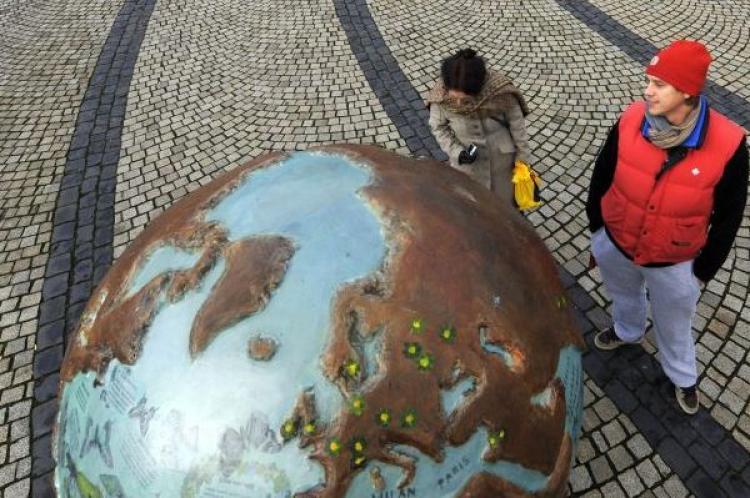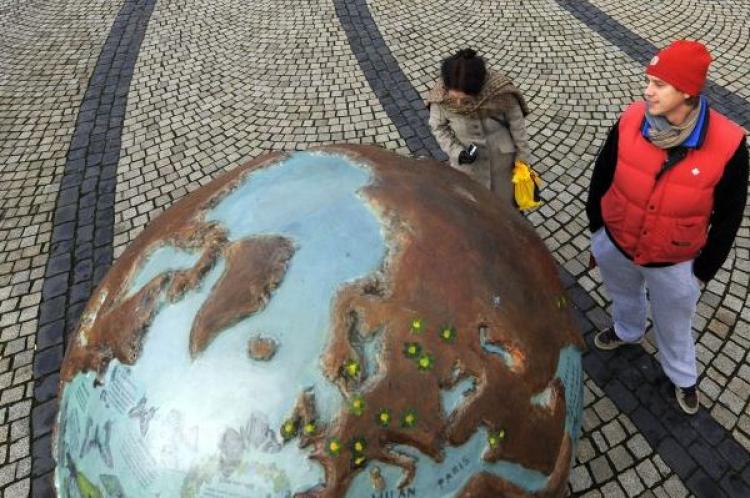Climate Change Summit Welcomes U.S. Declaration on Greenhouse Gases
Representatives from the U.N. and EU praised the U.S. declaration that greenhouse gases are a threat to human health.

People stop to look at a globe part of an art installation entitled 'Cool Globes', an exhibition about combating global warming and climate change in Kongens Nytorv in Copenhagen on December 8, 2009. Adrian Dennis/AFP/Getty Images
|Updated:





